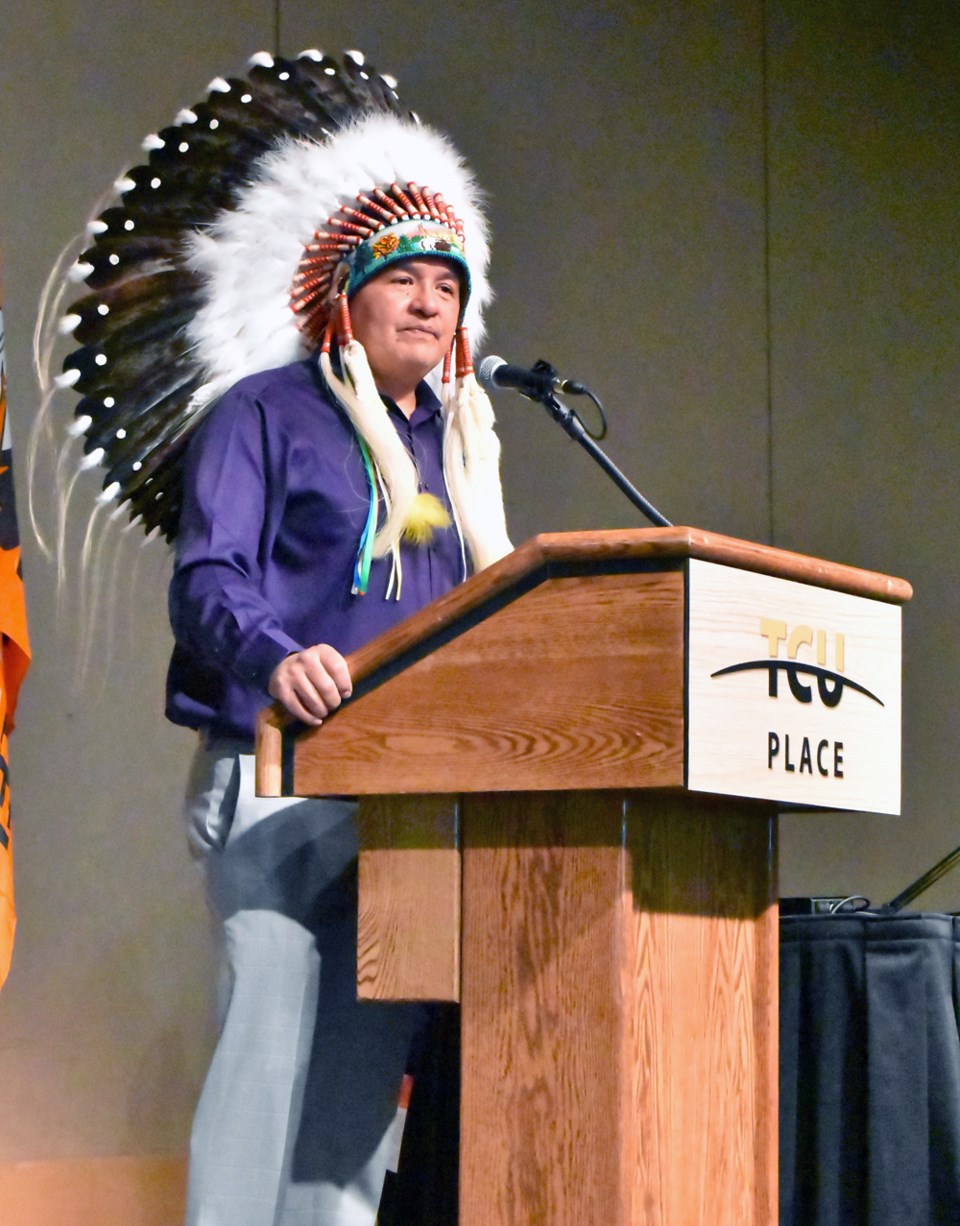SASKATOON — Federation of Sovereign Indigenous Nations Chief Bobby Cameron has criticized the provincial government for reducing funding to First Nations by almost nine per cent. Cameron stated that Saskatchewan’s economy primarily relies on natural resources from their ancestral lands and Treaty Territories. Yet, First Nations communities are being excluded from revenue-sharing programs that could address addiction and mental health issues.
According to the FSIN, the provincial budget aims to position Saskatchewan as a global leader in exploring and mining critical minerals, with 23 of the 31 on the Canadian Critical Minerals list found in the area. However, funding to First Nations was reduced by 8.76 per cent, excluding gaming payments.
“There has not been one First Nation [community] in the province to report a positive experience of consultation or accommodation, let alone revenue sharing. Still, the province continues to benefit [and share] its resources with cities, towns, resort towns and villages, and rural municipalities — everyone but First Nations,” said Cameron.
“The province tells the public that First Nations benefit from its program while it continues to leave First Nations communities out of programs like the rural marshal’s service and revenue sharing from gas tax revenue. No resource revenue currently goes directly to First Nations [communities].”
Cameron stated that the provincial government shares revenues from large-scale projects with different Saskatchewan communities but not First Nations communities. He criticized the government for failing to consult or accommodate First Nations communities and not sharing resource revenue directly with them.
The provincial government has over 80 large-scale project commitments with a total investment of $32 billion in Saskatchewan, including increasing potash sales to $9 billion, doubling the forestry industry’s size and raising oil production to 600,000 barrels daily by 2030.
FSIN Fourth Vice Chief Heather Bear supported Cameron’s statements, stating that First Nations’ inherent and Treaty rights need to be accommodated. She accused the province of having a bad track record of leaving opportunities for First Nations communities.
Bear emphasized that before soliciting investments from around the globe, the province needs to consult with First Nations leaders to guarantee that inherent and Treaty rights are not infringed upon and that they are included in economic opportunities in the area.
“All these critical minerals are within First Nations' ancestral and Treaty territory. The budget commits $4.0 million to expand Targeted Mineral Exploration Incentives, including exploration drilling for all hard-rock minerals and increases the funding limit to support emerging commodities,’ said Bear.
“However, before Saskatchewan solicits investments from around the globe, they need to ensure that they consult with First Nations [leaders] to guarantee Inherent and Treaty rights are not infringed upon and that we are included in economic opportunities in the province we inhabit. Once non-renewable resources are extracted from the ground, they are gone forever. Once the wealth has been dispersed and spent, it’s gone.”
The provincial government’s 2023-2024 budget includes the highest-ever Municipal Revenue Sharing at $297.9 million, but First Nations communities are not included in this revenue sharing. The FSIN stated that their communities must find ways to fund their infrastructure projects, road maintenance, and other expenses to improve their facilities.
The budget invests $7.0 million to establish the new Saskatchewan Marshals Service (SMS) to increase policing capacity in rural and remote areas. However, the province must include First Nations governments in developing this service.
The budget also includes $249.1 million in target funding for Indigenous and Métis people and organizations, but First Nations are not mentioned in the budget, and the financing of the Indigenous-owned contractors' part of the Accelerated Site Closure Program was cut.
The FSIN called for a resource revenue-sharing agreement to ensure First Nations people are included in employment opportunities, and First Nations-run companies are considered for contracts for every project. The organization also emphasized that the province needs to consult with First Nations leaders to guarantee their inherent and Treaty rights are not infringed upon.




